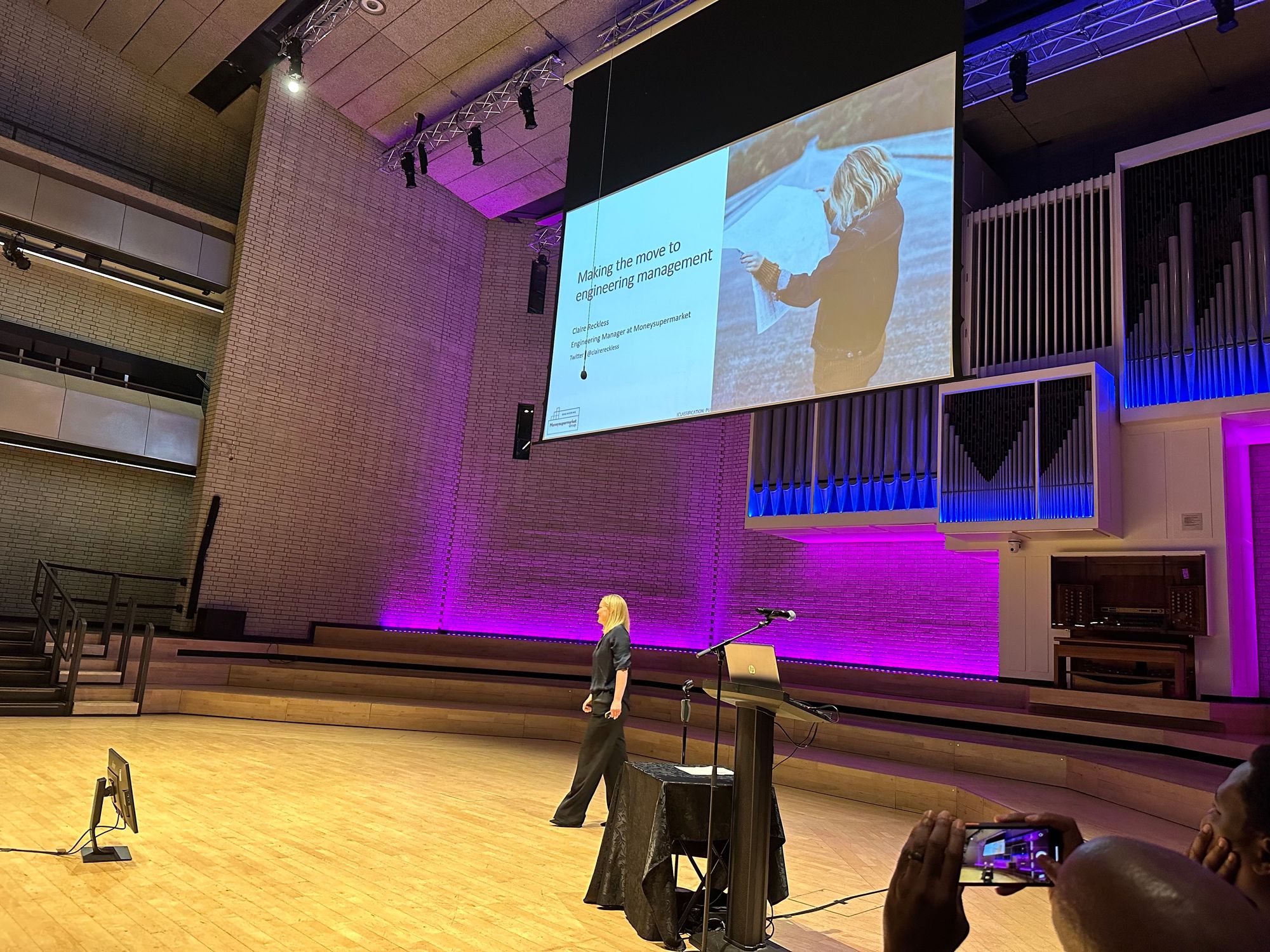Making the move to engineering management @ MCR DevCon 2023

Claire Reckless, an accomplished Engineering Manager at Moneysupermarket, was another insightful speaker at the MCR DevCon. With her deep-rooted experience in the tech industry, she brought a unique perspective on one of the career-defining transitions many tech professionals face: moving from individual contributor roles to management.
In her early career days, Claire served as a software tester and lead, supervising a small team of 4-5 people. It was a comfortable space, fostering growth, learning, and a sense of camaraderie among her team. This was back in 2020 when the world was just beginning to grapple with the unprecedented challenges brought about by the COVID-19 pandemic.
Upon returning to work post-maternity leave, Claire found herself in a brand-new office space—a refreshing start and a reassuring symbol of stability amidst the uncertain times. But just six weeks later, the impacts of the pandemic caught up, and she found herself trading the vibrant office environment for a remote work setup.

This sudden shift gave her a unique opportunity to introspect, to reflect on her career trajectory and the potential paths she could embark on. It was during this transformative period that she began contemplating a move towards engineering management.
Claire realized that she greatly enjoyed the people management aspect of her role and found she was good at it. She started wondering if she should pursue this path. Unfortunately, Moneysupermarket didn't have a role that suited her newfound interest at the time. In 2021, however, a new position, Engineering Manager, was created and she decided to apply.
The creation of this role was due to the recognition that responsibilities typically associated with an Engineering Manager were previously undertaken by test leads and tech leads who were already overstretched. With the introduction of this role, tech leads could focus on becoming technical specialists, and test leads could concentrate on becoming test specialists. Though they'd still partake in coaching and mentoring, line management duties would be delegated to the Engineering Manager.
Despite her interest, Claire admitted to feeling underqualified for the role and experienced imposter syndrome. She had to face the fear of managing people from departments she wasn't familiar with, such as developers, which was nerve-wracking. However, with four roles available, they were eventually filled with people from various departments, bringing a mix of skills and experiences to the table. Having colleagues in the same position also offered a support network for Clair, which proved to be a great help.

Taking on the Engineering Manager role meant building and rebuilding relationships within the team. Claire had to understand what the ideal hire looks like and ensure the formation of a healthy, happy, and high-performing team. A significant part of her journey involved learning to let go of the technical side of things and entrusting the team to do their jobs. She realized she had to use her technical skills differently and found value in asking common sense questions that encouraged the team to think differently.
One of the critical aspects she spoke about was the potential for burnout in the Engineering Manager role. She emphasized the importance of learning to say no, delegate, trust the team, and the process, and understand that she couldn't do everything at once. She also highlighted the necessity of being receptive to feedback and being open and honest.
Claire shared that she honed her skills by practising with graduates, which helped build her confidence in a safe environment. She concluded her talk on a thoughtful note, pointing out that all career paths are different.

Hearing about her experience was enlightening. Although everyone's career path is unique, it's beneficial to learn from others' experiences and use them as a guide in our own careers. We can apply their insights to make informed decisions about our professional journeys. Claire's talk underscored the importance of self-reflection, taking calculated risks, and constant learning as key elements of career progression. It was a valuable takeaway for everyone at MCR DevCon, reminding us that with perseverance and the right mindset, we can navigate even the most daunting career transitions.
